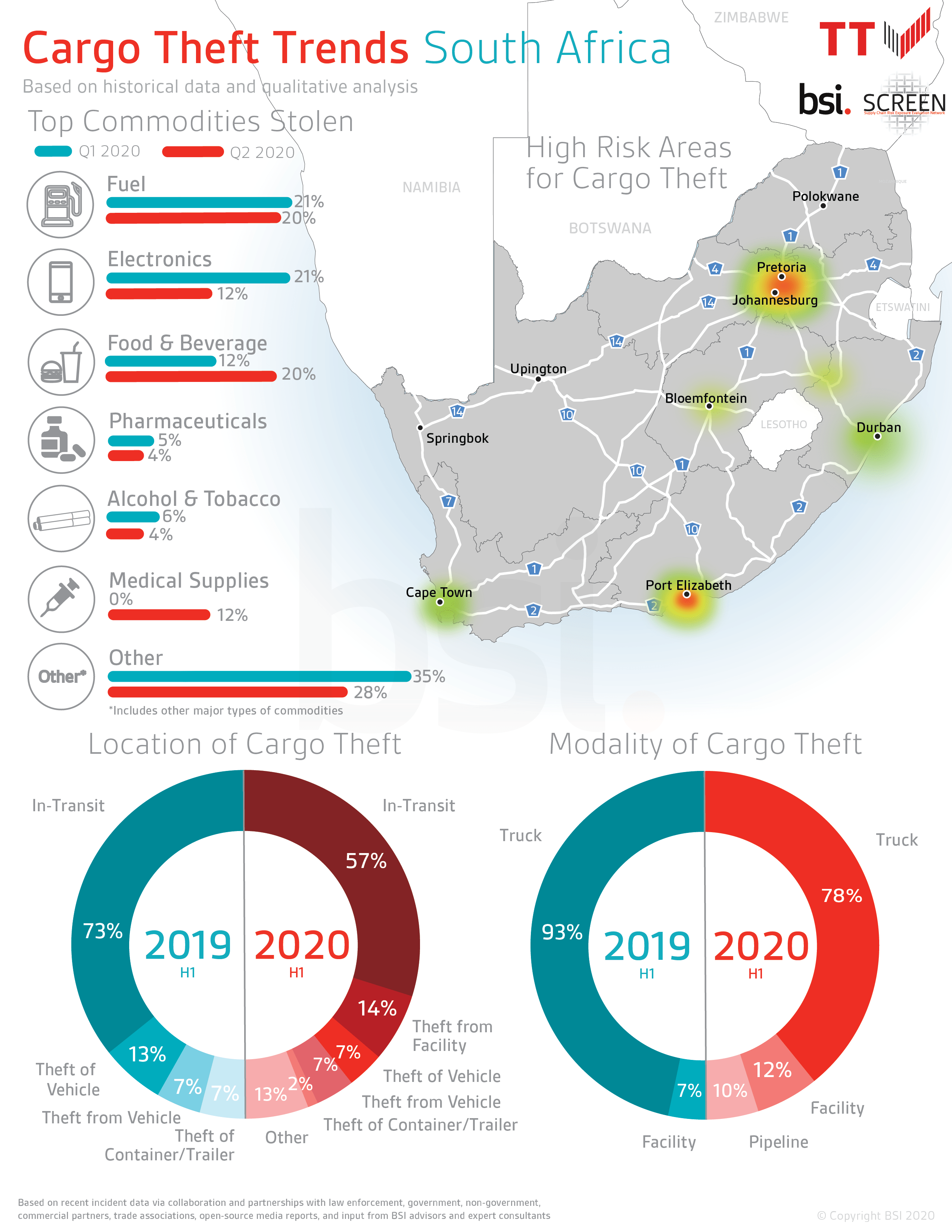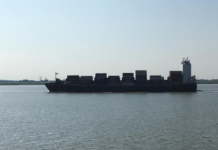
A cargo theft report conducted over the first half of this year reveals the growing risk to medical supplies and food as the prolonged pandemic has continued spread, with the overwhelming attacks remaining while cargo is in transit on trucks.
Although the study does not detail reasons for thefts, the major items stolen remain fuel, with food stuffs rising 66% from the first to second quarter to reach equivalence with fuel at 20%, while medical supplies went from zero to 12% over the two periods.
The new report by insurer TT Club and the British Standards Institution (BSI) has highlighted the ongoing vulnerability of South Africa to cargo crime.
South Africa ranks among the top countries in the world, and first on the African continent, for BSI’s forecast losses due to cargo theft, underscoring the significant economic impact of this issue in the nation.
The following graphic illustrates statistics from both the South African Police Service (SAPS) and news sources, in addition to those recorded by BSI’s Supply Chain Risk Exposure Evaluation Network (SCREEN) and underlines the typical characteristics of cargo thefts occurring in the country.
 In total, three key trends resulted from BSI and TT’s research in 2019 and 2020:
In total, three key trends resulted from BSI and TT’s research in 2019 and 2020:
- thefts from facilities increased during the first half of 2020
- an uptick in incidents of cargo theft occurred in Eastern Cape and Western Cape between the first two quarters of 2020
- thefts of food and beverage and medical supplies increased in Q2 2020.
The report’s authors emphasise that the understanding of cargo theft risk plays a big part in mitigating both the occurrence and impact of these incidents on stakeholders’ organisations and is crucial in building a truly resilient supply chain.
Historically, there is an inverse relationship between crime and economic growth in South Africa, said the report, however, this year, due to the virus pandemic and the impacts of lockdowns and a decline in the economy, an additional layer was added to that relationship.
The economic decline, along with the changes brought about by a restrictive lockdown in response to Covid-19 earlier this year, left the freight sector in a vulnerable situation. South Africa is an environment traditionally characterised by cargo truck hijackings, while cross-border truck congestion and slower freight clearance created secondary disruptions that leave cargo even more susceptible to theft and general violence.
The report, entitled “Freight Crime in South African Supply Chains” is made possible by fusing the threat and intelligence data and analysis from BSI’s SCREEN and TT Club’s insurance risk management and loss prevention insights.
Security awareness and proactive risk management actions are essential steps in creating a risk-averse supply chain, according to Mike Yarwood, TT Club’s loss prevention managing director who said that the cargo theft report “also points the way to how preventative measures can, and must, be introduced and enhanced to reverse the damaging trends.”
“Understanding the threats in South Africa, detailed in this report, and incorporating the suggested preventative measures, including screening employees, implementing security management systems, and securing parking depots, will help organisations work towards developing more secure and resilient supply chains,” added David Fairnie, BSI principal consultant for supply chain security.





